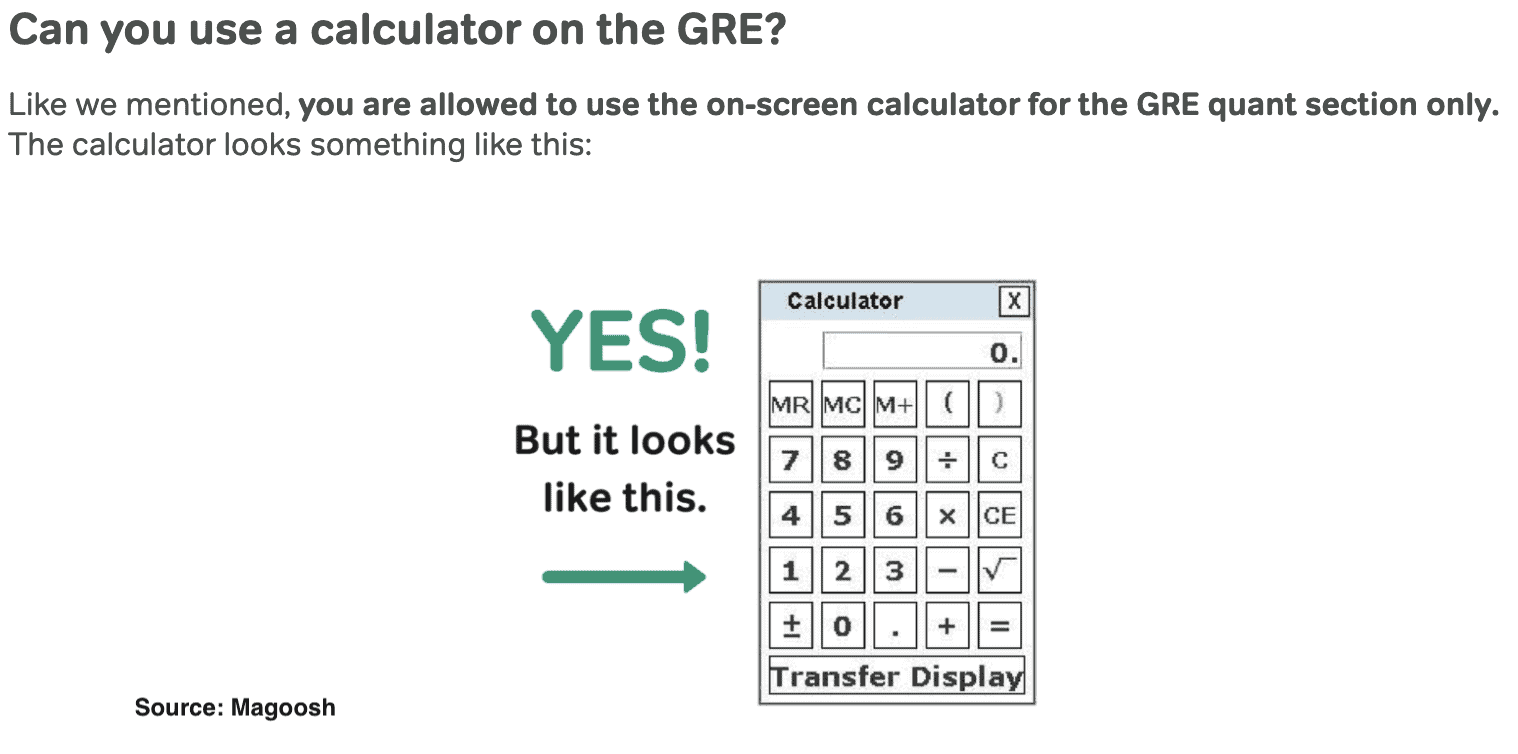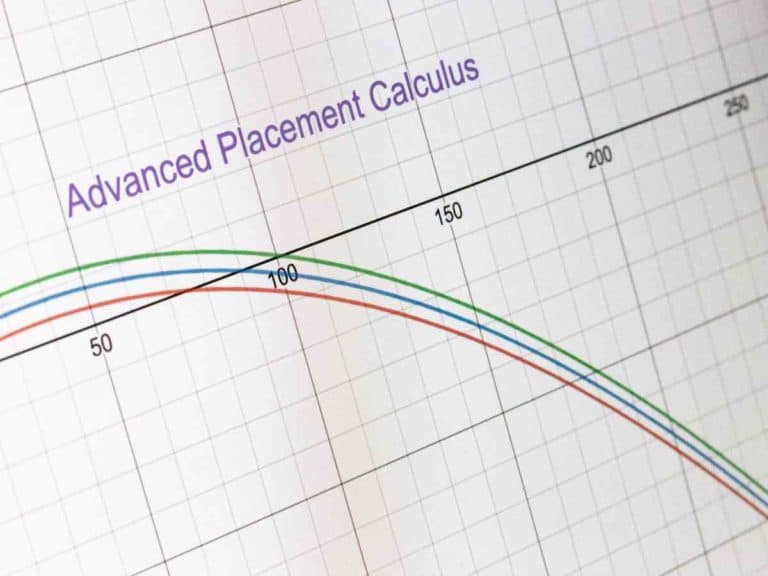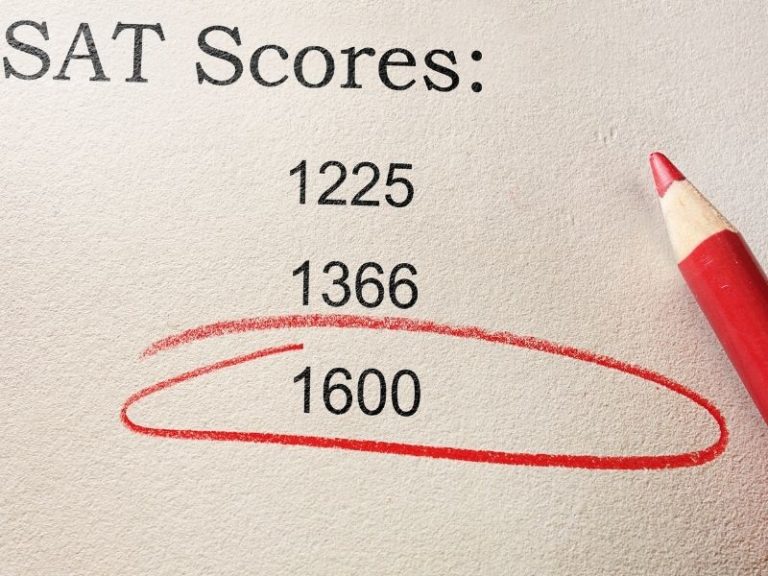GRE 101: Top Strategies for Dominating the GRE Test
You may have to take the Graduate Record Examinations (GRE), which is given by the Educational Testing Services (ETS), if you are planning on going to graduate schools after earning a bachelor’s degree.
The GRE is a graduate school entrance exam that undergraduate students who want to have a graduate degree must take, depending on the university they plan to attend.
It’s a computer-based exam that’s taken not only by graduate school-bound individuals in the US but also in Canada and other countries, too.
In this post, the GRE test refers to the GRE General Test, which is different from the GRE Subject Test. Read on to know the key differences between them and more.
Is the GRE Important for College Admissions?
Taking the GRE test is important in many instances, particularly if students like to earn a graduate degree after completing an undergraduate degree program.
The standardized test serves as an entrance examination for many different graduate schools as well as a prerequisite for certain graduate degree programs.
Do You Have to Take the GRE?
Taking the GRE is a must for applicants who are looking to get admitted to many graduate schools in the US and Canada, too. This is especially true for those who are interested in pursuing a master’s degree or juris doctor.
It goes without saying that some graduate schools have a test-optional or test-blind policy on the GRE — they do not make it mandatory for applicants to submit their GRE scores.
However, almost always, hopefuls are asked to submit or fulfill other admission requirements such as undergoing an interview.
Can Universities See How Many Times You Took the GRE?
Universities cannot see how many times an applicant took the GRE test.
That’s because their admissions officers only see the scores that the individual chooses to send them.
There is no evidence that the admissions chances of someone to a graduate school are lowered by sitting for the GRE multiple times.
Graduate school-bound students may retake the GRE test if they are unhappy with their scores.
There is no limit as to how many times a person can take the GRE in his or her lifetime.
However, the standardized test can be retaken once every 21 days only and no more than 5 times in a calendar year.
What is on the GRE?
The GRE is a graduate school entrance exam that consists of different timed sections. Each section is scored differently, which is why examinees receive a total of 3 scores in the score report.
Some of the questions are multiple-choice, while others are free-response and numeric entry types.
How Many Sections are on the GRE?
The GRE test consists of 3 sections, and they are the following:
- Analytical Writing
- Verbal Reasoning
- Quantitative Reasoning
The Analytical Writing section consists of only 1 section. On the other hand, both the Verbal Reasoning and the Quantitative Reasoning sections are divided into 2 sections.
It’s important for any test-taker to bear in mind that each section of the Verbal Reasoning and the Quantitative Reasoning sections are timed separately.
On the other hand, a GRE Subject Test, which focuses on a particular subject, has no separate times sections.
Besides the 3 different sections above, the GRE also has 2 additional sections that do not count toward an examinee’s total score, and they are the Unscored and Research sections — we will talk about them shortly.
How Many Questions is the GRE?
There are a total of 82 questions on the GRE. The bulk of the said questions come from the Verbal Reasoning and the Quantitative Reasoning sections, each section of which has 20 questions.
Let’s take a look at the number of questions each section of the GRE test has:
| Section | Number of Questions |
| Analytical Writing | 2 |
| Verbal Reasoning | 40 |
| Quantitative Reasoning | 40 |
What Kind of Math is on the GRE?
According to ETS itself, the kind of math included on the GRE test is secondary school mathematics and statistics at a level that’s no more advanced than a second course in algebra.
The range of math topics is found in the Quantitative Reasoning section of the GRE.
Examinees who don’t consider math as their favorite will be glad to learn that the graduate school entrance exam doesn’t include high-level mathematics such as trigonometry and calculus.
However, they will need to have some kind of understanding of the basic concepts of arithmetic, algebra, geometry as well as data interpretation.
In a few, we will discuss whether or not examinees are allowed to use a calculator — don’t stop reading now!
Is There Science on the GRE?
There is no science on the GRE test.
On the other hand, there are GRE Subject Tests in various science-related disciplines, which are available for graduate school-bound individuals with extensive background in them.
Here are the different science GRE Subject Tests:
- Biochemistry, Cell and Molecular Biology
- Biology
- Chemistry
- Physics
To give you an idea of what a GRE Subject Test in science looks like, here’s the syllabus for the Chemistry exam:
- Organic chemistry – 30%
- Physical Chemistry – 30%
- Inorganic chemistry – 25%
- Analytical chemistry – 15%
Is There Writing on the GRE?
The writing section on the GRE test is referred to as the Analytical Writing section.
As the name suggests, this section of the standardized test measures the examinee’s analytical writing and critical thinking skills, as demonstrated by his or her proficiency in
expressing complex ideas and supporting them with relevant reasons and examples.
As mentioned earlier, the Analytical Writing section of the GRE requires those who are sitting for it to write 2 essays.
There’s a broad range of topics that the tasks in the said section involve, ranging anywhere from fine arts to humanities. Any examinee, however, need not have any knowledge of any specific topic to understand the requirement.
The first essay is an issue essay where the test-taker is asked to respond to an issue of general interest in a specific manner.
The second essay, on the other hand, is an argument essay where the individual taking the GRE test is asked to evaluate the presented argument according to the given instructions.
What is the GRE Reasoning Test?
Verbal Reasoning and Quantitative Reasoning — these are the GRE test sections that evaluate a test-taker’s reasoning ability.
But while they both require reasoning skills, each of them tests a different set of proficiencies.
Let’s take a look at the key differences between these sections:
- Verbal Reasoning – It’s designed to test an individual’s grasp of vocabulary and also how well he or she can understand the meaning of words and sentences.
- Quantitative Reasoning – It’s meant to assess the test-taker’s ability to solve problems by applying various math concepts such as algebra and geometry, except high-level math.
How Does the GRE Work?
The GRE test is a computer-based standardized test used by many graduate schools as an entrance exam. It’s also a computer-adaptive test, which means that the performance of an examinee in a section affects the difficulty level of the next.
Every section of the GRE is scored separately, converting the raw score into a scaled score.
What Does the GRE Measure?
Besides command of basic arithmetic and college-level vocabulary, the GRE test is also designed to assess an examinee’s verbal reasoning, quantitative reasoning, critical thinking and also analytical writing skills.
All of said skills have been acquired and developed by the person over a long period of time, and are not necessarily related to a specific discipline.
Instead, the various skills measured by the GRE test are vital for all fields of study.
Is the GRE Multiple Choice?
Most of the questions on the GRE test are multiple-choice questions.
As a matter of fact, there are a couple of types of multiple-choice questions on the graduate school entrance examination:
- Multiple-choice questions with a single correct answer
- Multiple-choice questions with more than a single possible answer
It’s important for examinees to note that there are also other types of questions on the GRE.
They include free-response questions where test-takers respond with essays and numeric entry questions where a numerical response is required.
Is the GRE a Standardized Test?
The GRE test is a standardized type of test.
That’s because it’s the very same test taken by undergraduate degree holders who are applying to graduate schools that require the GRE in the admissions process.
Regardless of the major or degree or the postsecondary institution, test-takers have to answer the same sections with the same set of questions.
Likewise, their examinations will be graded in the same fashion.
Also, graduate school applicants have to sit for the same GRE exam no matter the graduate program they wish to apply to.
When Do You Take the GRE Test?
Examinees can take the GRE test either at a designated test center or at home.
In more than 160 countries, the standardized test is administered at over 1,000 ETS-authorized test centers, each of them providing students sitting for the GRE with a secure testing environment.
Taking the GRE test at home is also possible if the test-taker prefers it.
Cheating on the entrance exam is prevented with the help of security measures that use not only human proctors but also AI technology.
Anyone who wishes to opt for the at-home GRE testing should note that the exam will have the same format, content and overall experience.
How to Guess on the GRE
Because there is no penalty for wrong answers on the GRE test, examinees may take a guess each time they don’t know the answer and not have their overall scores suffer.
Most multiple-choice questions on the graduate school entrance exam have 5 answer options — some may only have 3 or 4 options.
The right way to guess on the GRE is for the test-taker to eliminate as many incorrect answers as he or she can to increase the chances of getting the correct answer.
Sadly, not all questions on the GRE test are multiple-question types, which is why preparing for it well is a must.
How Long is the GRE?
The GRE test takes 3 hours and 45 minutes to complete, which includes breaks.
The section with the most time given for examinees to complete is the Quantitative Reasoning section even though it has the same number of questions as the Verbal Reasoning Question.
Below is a table showing the duration of each section of the GRE test:
| Section | Allotted Minutes |
| Analytical Writing | 60 minutes (30 minutes per task) |
| Verbal Reasoning | 60 minutes (30 minutes per section) |
| Quantitative Reasoning | 70 minutes (35 minutes per section) |
How Does GRE Scoring Work?
A test-taker’s GRE score is the scaled score of his or her raw score.
The raw score is the number of correct answers that the examinee gets.
Afterward, it’s converted into a scaled score by means of a process ETS refers to as equating, which means that minor variations in difficulty among the different test editions and also the differences in difficulty introduced by the section-level adaptation are taken into account.
Both Verbal Reasoning and Quantitative Reasoning sections are scored on a scale ranging from 130 to 170. The Analytical Writing section, meanwhile, is scored on a scale ranging from 0 to 6.
What is a Good GRE Score?
There are a couple of ways to determine whether or not a GRE score is a good score.
First, the graduate program a test-taker is interested in is considered, particularly the scores of most admits.
Second, there’s the percentile rank, which indicates how a particular examinee’s GRE scores to the scores of other examinees.
For instance, the following are the mean scores for each section of the GRE test in 2022:
| Section | Mean Score |
| Analytical Writing | 3.56 |
| Verbal Reasoning | 150.94 |
| Quantitative Reasoning | 155.44 |
Here’s a link to the most recent percentile ranks from ETS itself.
Facts About the GRE
In the US and most countries where it’s administered, the GRE test costs $220.
Meanwhile, a GRE Subject Test costs $150, and its price tag remains the same no matter where on the planet an examinee takes it.
A test-taker can decide to send his or her official GRE score report to up to 4 schools, whose cost is included in the registration fee. Other fees apply such as additional score report, score review and test rescheduling.
Below, you will come across some other important matters you need to know about the GRE test.
History of the GRE
It was in 1936 when the GRE test was established by the Carnegie Foundation for the Advancement of Teaching as well as 4 Ivy League schools, namely Columbia, Harvard, Princeton and Yale.
The first public university to ask its students to take the standardized test was the University of Wisconsin in 1938.
Institutions that followed suit were the University of Iowa, Texas Tech University and Michigan State University.
By 1948, the GRE test was taken by more than 45,000 students applying to 500 institutions.
Who Created the GRE?
It was the ETS that created the GRE to provide standardized measures that would allow graduate school applicants to be compared with each other regardless of their educational background.
Meanwhile, the questions on the GRE test are developed by a committee of examiners made up of professors who are undergraduate and graduate faculty members at various types of academic institutions in various regions of the US and Canada.
It is rumored that the questions they create are stored by ETS in a massive question bank with over 10,000 entries.
What is the Educational Testing Services?
Established in 1947, ETS is considered the largest administrator of standardized tests on the face of the planet. Research, assessments and learning solutions it offers help inform as well as create opportunities for learners worldwide.
How Many People Take the GRE?
According to data provided by ETS itself, there were a total of 467,277 individuals who took the GRE test in the testing year 2019 to 2020.
Of those, 250,274 were test-takers from the US, which made up more than half of all examinees — 53.56%.
The largest age group that sat for the GRE in the same testing year was the under-23 bracket, making up 47% of all test-takers.
What is the GRE Designed to Predict?
Simply put, the GRE test is designed to predict the likelihood of an individual succeeding in graduate school by evaluating some of his or her skills that are vital for working on a graduate degree program.
Are the Fourth and Fifth Sections on the GRE Scored?
Besides the 3 sections of the GRE test mentioned several times already, there are two more sections examinees need to know about as they are very much likely to undergo them when sitting for the graduate school entrance exam.
The said additional GRE test sections are the Unscored and Research sections.
These sections are unscored, which means that they won’t affect a test-takers overall GRE score.
And they are administered by ETS to experiment with questions in an actual test setting.
Does the GRE Provide Calculators?
The GRE provides examinees with calculators.
The type of calculator test-takers employ where the use of such is allowed will depend on which format of the GRE test they sit for.
Individuals who are taking the computer-based version of the graduate school entrance exam have to use an on-screen calculator, which means that it’s integrated into the software used, so there’s no need for them to bring a calculator.
Here’s what the said calculator looks like — give it a try to have an idea of how it will feel using it during the test.

Similarly, those who are going for the paper-based version also need not worry about having a calculator with them as they will be provided with one at their designated test centers.
Is the GRE Changing?
Back in May 2023, ETS announced that it will administer a shorter version of the GRE test beginning September 2023. The new GRE will take less than 2 hours to complete, which is roughly 50% of the total test time of the old examination.
The following steps will be taken by ETS to shorten the GRE test:
- Remove the “analyze an argument” part of the Analytical Writing section
- Reduce the number of questions in both Quantitative Reasoning and Verbal Reasoning sections
- Elimination of the unscored section
Because a shorter GRE test has fewer questions, it’s faster to score.
And since it’s faster to score, examinees can expect to receive their GRE scores quicker — it is said that they can be available in just 8 to 10 days instead of the usual 10 to 15 days.
How to Study for the GRE
To get one’s desired GRE score, the general consensus is that an examinee should prepare for the standardized test 3 to 6 months before the test date.
However, depending on an individual’s available time and study habits, it’s possible to take the GRE test and get a good score, too, by studying for 1 to 2 months.
Other than brushing up on key concepts in various subjects covered by the GRE, it’s also important for test-takers to build their vocabulary and practice solving math problems without a calculator.
Reproducing actual GRE testing conditions is also an important part of the preparation phase.
For such, practice tests should be taken. Experts recommend taking a total 3 to 5 GRE practice tests, having a timed test once every couple of days.
There are many free GRE mock tests on the internet. ETS also offers various full-length official GRE practice tests, most of which come with a price tag, while a few are cost-free.
GRE Practice Test
In this part of the post, I will give you a total of 10 sample GRE questions — 5 sample questions for the Verbal Reasoning section and another 5 sample questions for the Quantitative Reasoning section.
GRE Verbal Reasoning
1. Attendance at five of seven local theaters has increased 15% this season. The theaters that saw increased attendance presented plays by William Shakespeare as well performances by a well-regarded local orchestra. To ensure continued growth, theaters should continue to schedule performances that appeal to the faculty and staff of the universities in the area. What assumption does this argument make?
2. Digital books are more cost-effective, use fewer natural resources to produce, and are much easier to store and transport. With the advent of digital reading apps for phones and tablets, it is likely that paper books will be published less and less frequently and eventually be completely replaced by their digital counterparts. Which statement, if true, threatens the author's conclusion?
3. In the city of Auburn, over 25% of residents live in poverty. The vast majority of unemployed people surveyed reported that they are actively seeking work. Recently, a manufacturing firm opened a new plant and attempted to hire 100 workers. Only 3% of residents living in poverty applied for a position with the firm. Which statement best explains this paradox?
4. The supervisor of an accounting firm often repeats the old proverb, "A new broom sweeps clean, but the old brush knows all the corners." Based on this statement, one can conclude that...
5. Scientists have developed a new kind of sandwich bread that contains elements that can counteract the allergen properties of peanut butter, making it possible for those with peanut allergies to each peanut butter and other foods. Which of the following would most likely support the implications of this development?
Answer key:
GRE Quantitative Reasoning
1.
Quantity A: The least prime number greater than 24
Quantity B: The greatest prime number less than 28
2.
Quantity A: 54% of 360
Quantity B: 150
3. Which of the following numbers is farthest from the number 1 on the number line?
4. A car got 33 miles per gallon using gasoline that costs $2.95 per gallon. Approximately what was the cost, in dollars, of the gasoline used in driving the car 350 miles?
5. Each employee of a certain company is in either Department X or Department Y, and there are more than twice as many employees in Department X as in Department Y. The average (arithmetic mean) salary is $25,000 for the employees in Department X and $35,000 for the employees in Department Y. Which of the following amounts could be the average salary for all of the employees of the company? Indicate all such amounts.
Answer key:
The GRE sample questions above are from the following:
www.ets.org
www.softschools.com
Should I Take the GRE?
Planning on earning a graduate degree after getting your hands on a bachelor’s degree?
Since many graduate schools and also certain graduate degree programs require applicants to have GRE scores, chances are that you may have to sit for the GRE test to become eligible to apply to your dream university, if the standardized test is a part of the admissions process.
Read Also: What is MCAT?
Disclaimer: The views and opinions expressed in this article are those of the authors and do not necessarily represent those of the College Reality Check.






